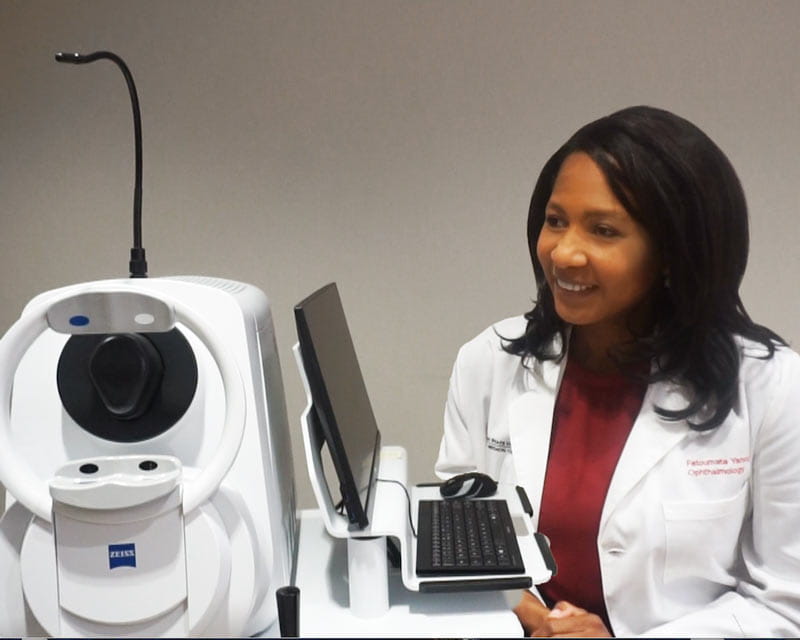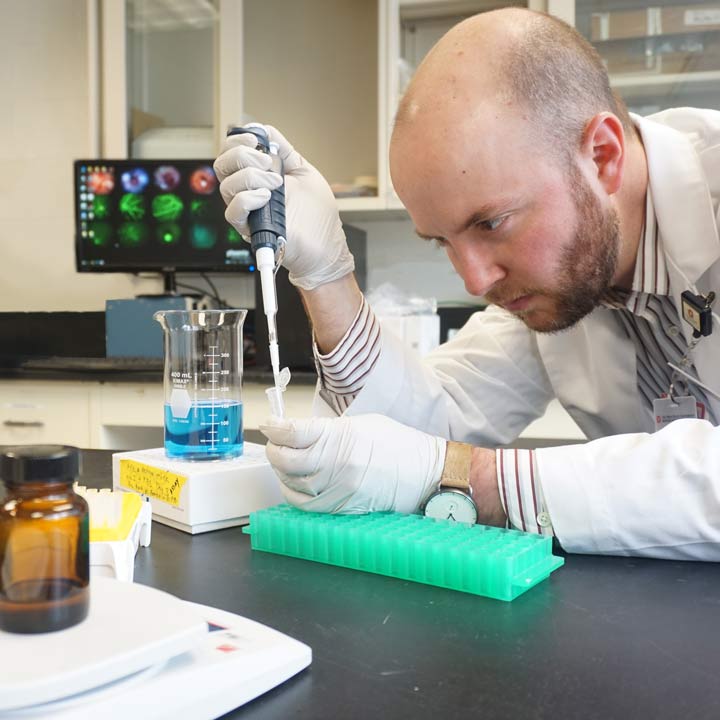
Swept-source OCT angiography reveals exquisite details of ocular structures
 Thomas Mendel, MD, PhD, is building a research program at The Ohio State University Wexner Medical Center to develop and implement gene therapies for patients with inherited retinal disease.
Thomas Mendel, MD, PhD, is building a research program at The Ohio State University Wexner Medical Center to develop and implement gene therapies for patients with inherited retinal disease.
“A clinician-scientist, Dr. Mendel joined Ohio State in August 2021. He’s leveraging his 15 years of training and expertise to build a translational lab with an outstanding team that can accelerate development and clinical trials with innovative gene-based treatments for inherited retinal diseases (IRDs)
“This is the first time in human history that we can address these diseases,” Dr. Mendel says. “In the past, we could diagnose these conditions, but we could not improve them.”
Genetics research is essential for precision-based care to provide earlier diagnosis, improve outcomes, explain the genetic causes of disease and determine the best treatments and their timing for each patient.
Patients with IRDs can experience diminished vision in low light or night blindness, loss of color vision, light sensitivity and progressive vision loss due to degeneration of specific retinal cells.
Dr. Mendel will partner with other researchers at Ohio State and at Nationwide Children’s Hospital, which houses the Center for Gene Therapy. There, Kathrin Meyer, PhD, runs a dynamic laboratory that investigates gene therapy for Batten disease, a neurodegenerative condition that causes blindness, among other projects. At the center, they administer gene therapy through cerebral spinal fluid and have a preliminary track record of success with strong safety data.
“We are building from scratch a large, full surgery suite for preclinical testing and an experimental platform for retinal surgery and testing gene therapy more robustly for multiple conditions,” Dr. Mendel says.
His goal is to marry basic science lab work with a clinical practice of retinal care — all at a time when gene therapy is coming online more broadly.
Dr. Mendel’s education includes lab training and work in stem cell therapy for diabetic retinopathy at the University of Virginia, followed by ophthalmology residency at Vanderbilt University, then a vitreoretinal surgery fellowship at Cleveland Clinic’s Cole Eye Institute, and pediatric vitreoretinal post-fellowship training at University of Michigan.
Dr. Mendel’s focus on research and clinical care is a good fit as Ohio State continues to grow the depth and breadth of its ophthalmology research. Since joining Ohio State, Dr. Mendel trained for a brief time at University of Michigan with retina surgeons who performed vitreoretinal surgery using Luxturna’s gene therapy, the first Food and Drug Administration-approved gene therapy for the human eye. Dr. Mendel says it’s incredibly powerful to see children respond to the therapy. After surgery, many go from being nearly blind with no night vision to having vision between 20/40 and 20/70.
“You see them perk up and respond to visual cues for the first time. It’s pretty moving,” Dr. Mendel says.
As a clinician, Dr. Mendel is motivated by his patients. He cares for both adults and children and sees some patients on a weekly basis.
He’s assembling a team that will continue lab work and develop clinical expertise to position Ohio State to be a clinical trial site for future gene therapy research.
Dr. Mendel says his lab will greatly benefit from the recently awarded National Institutes of Health P30 Center Core Grant, called The Ohio State University Vision Sciences Research Core Program. “The P30 core grant reflects on a national scale some of the pieces that Sayoko Moroi, MD, PhD, chair of the Department of Ophthalmology and Visual Sciences, has already put in place, richly expanding research expertise and investment in quality to accelerate our work,” Dr. Mendel says.
“I will benefit directly from many facets of the P30,” he says. “One of the main reasons I came to Ohio State was because the job was too good to pass up. Dr. Moroi has pulled together all the things that make for successful research — mentorship, camaraderie and teamwork.
“We are at the very beginning of a new wave of medicine in ophthalmology and retina care.”